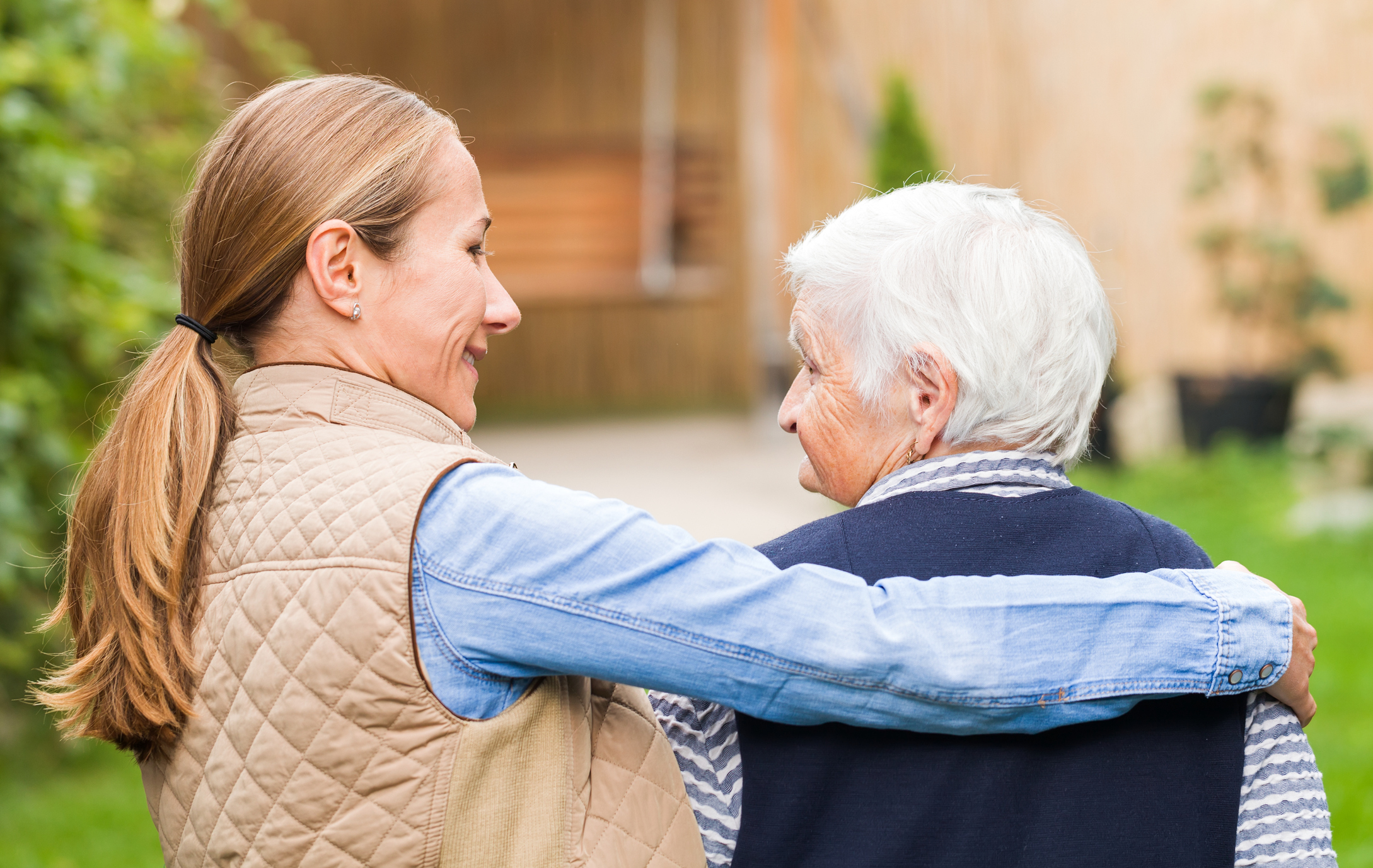As elderly parents or other loved ones become more frail, you may be called upon to help them walk, rise from a seated position or transfer from a bed or wheelchair. But how you assist older adults with limited mobility is important and can help prevent injury to both parties.
Because falls are the leading cause of fatal and non-fatal injuries among older adults, and often precipitate a loss of independence, fall prevention is crucial to protect quality of life for seniors. According to the Centers for Disease Control and Prevention, 1 in 4 Americans over the age of 65 experience a fall each year; and fearing they will no longer be able to live at home, many seniors do not report when they have had a fall.
Properly assisting an elderly adult takes a bit of practice to avoid injuring yourself or the older person. Remember never to pull on arms; get in close by the weaker side of an elderly adult to offer more stability using a bent arm while walking. Have the older person place their hand on top of your fist to avoid fingers getting tangled. Supportive, grippy shoes are also key to walking safely.
Caregivers can help a senior rise from sitting by positioning themselves at the side to provide support, gently lifting at the waist or by using a transfer belt. Increasing the seat height with a high density cushion and using a chair with arms to push off can also help seniors rise from a seated position more easily. Keep any walkers or canes within close reach and always communicate exactly what you are doing. Lift with bended knees rather than your back, avoiding twisting and letting the older adult use as much of their strength as possible.
Staying mobile is important to prevent muscle loss and balance problems for aging adults. Walking with proper assistance is better than not walking at all but it’s also important to use only what device you absolutely need, a cane or a walker, to preserve as much strength as possible.
Learn more about how to offer assistance to a loved one without injuring yourself or them by viewing these Marie Curie UK YouTube videos.






Add Your Voice
0 Comments
Join the Discussion